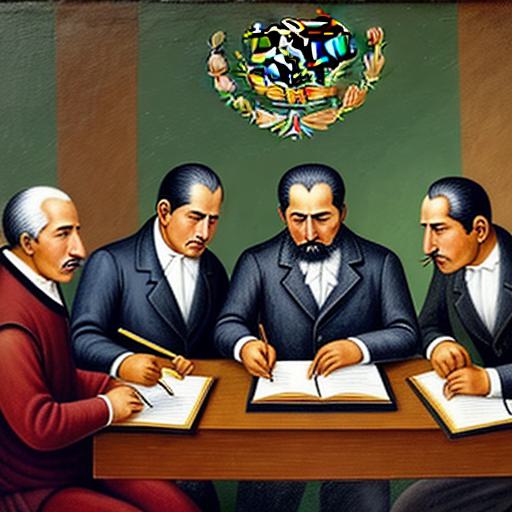Constitution of Bentho
| Constitution of the Secular Republic of Bentho | |
|---|---|
 The Constitutional Assembly adopts the Constitution, by Horácio Serna | |
| Created | October 3, 1605 |
| Ratified | October 17, 1605 |
| Location | Politanu San Pera, Bentho |
| Author(s) | Constitutional Assembly |
| Signatories | 4 members of the Constitutional Assembly |
The drafting process of the Constitution of the Secular Republic of Bentho was a collaborative effort undertaken by a diverse group of representatives chosen from different segments of society. These representatives included scholars, legal experts, activists, and representatives from marginalized communities, ensuring the inclusion of diverse perspectives. The Constitutional Assembly conducted extensive consultations and public hearings to gather input and feedback from the citizens of Bentho. The drafting committee carefully considered the principles of socialism, democracy, and secularism, along with the historical context of Bentho being a nation that had never been colonized. They aimed to create a constitution that would safeguard civil rights, promote social welfare, and reflect the aspirations of the people for a just and equitable society.
The decision to emphasize socialism, democracy, and secularism in the Constitution was driven by a commitment to address historical inequalities, prioritize the welfare of all citizens, and ensure the separation of religion and state. The socialist principles were chosen to counteract economic disparities and establish a fairer distribution of wealth and resources. Democracy was deemed crucial for ensuring popular participation and accountability in governance. By embracing secularism, the Constitution aimed to protect religious freedom, prevent discrimination, and foster a society that respects diverse beliefs and values. Overall, the Constitution of the Secular Republic of Bentho reflects the collective vision of the people to build a society founded on equality, justice, and the fulfillment of civil rights for all.